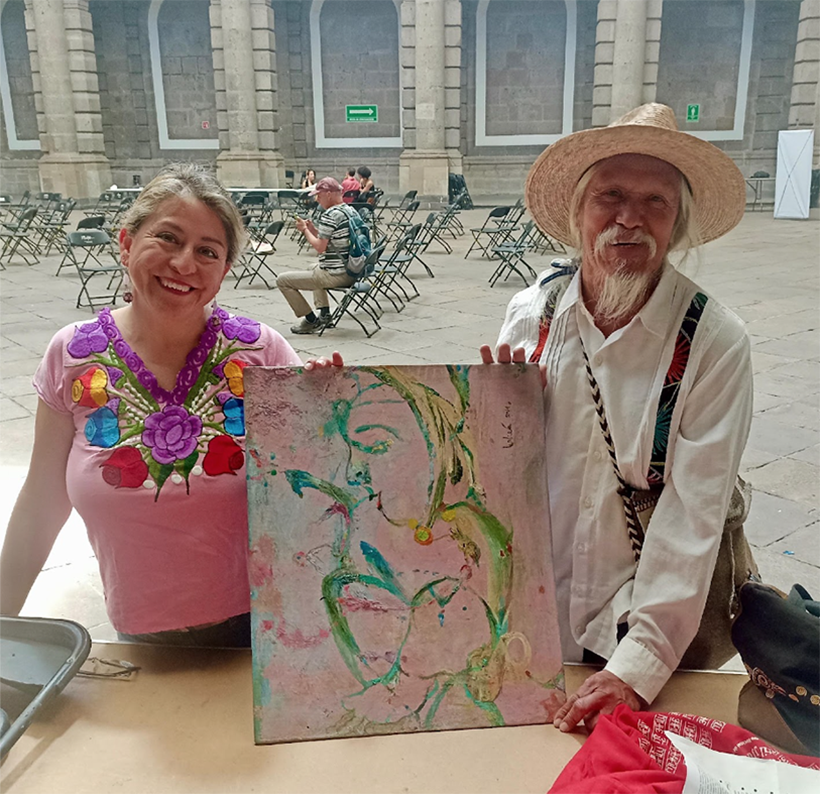The initiative to create an educational centre of Zapotec knowledge under the impetus of the Zapotec painter-philosopher, Maestro Nicéforo Urbieta Morales
By Denis Linckens, member of the International Collective of Young Francophones at WSF 2022
The Zapotec civilisation, known as the “people of the clouds”, is a matriarchal culture whose origins, located in the valley of Oaxaca, date back more than 2000 years. Maestro Nicéforo Urbieta Morales, whom we met at the World Social Forum 2022, is a painter and philosopher born in 1950 in the village of Santa Ana Zegache. Elements of Zapotec culture can be found in all his artistic work. He has been working for several decades to make the thought of his people known and studied. It was only recently, during the pandemic, that the idea of creating an educational centre to teach Zapotec culture and thought, “the house of the wind”, was born. Today, the project brings together some fifteen people and a multitude of organisations to carry out this work of sharing knowledge, practices and visions of this culture through the multiple indigenous languages that are recognised in the valley of Oaxaca.
“The educational look of the original peoples has a lot to tell us”.
Dialogue, art and play are at the centre of the educational process in the “house of the wind”. According to Nicéforo Urbieta Morales, the world’s interest in Zapotec culture is a “threat” to it, as it is seen only through the prism of its folklore and transformed into a commercial service to please and sell to tourists. By focusing on folklore, the world is depriving itself of the essential: the richness and complexity of the thought and philosophy of Zapotec culture.
“La casa del viento” was born out of the impossibility of universities to understand indigenous demands and proposals. Nicéforo Urbieta Morales puts it this way:
“They have not understood that we do not need schools of anthropology; that we have our own epistemological universe and it is on this universe that we want to create our own university. Moreover, we cannot speak of a university, but of udiversity or ludodiversity, because we promote constant play: dialogue. Dialogue is always a game, a game of ideas, a game of phenomena… We realised that we did not fit into the concept of a university, so the only recourse left was to start by ourselves. And from this observation, when the pandemic broke out, we started […]”.
Initiatives like this are what the world needs and should be widely supported.












